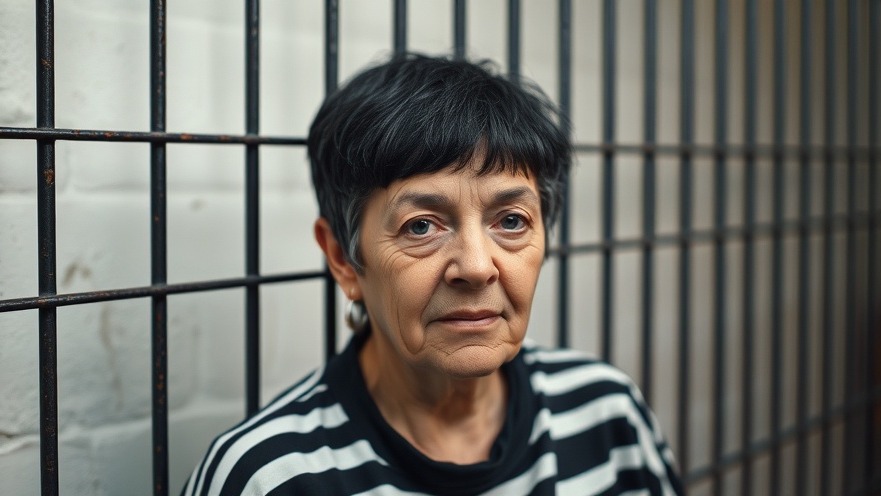
Ghislaine Maxwell's New Chapter at Texas Federal Prison
In a significant update that keeps the discussions about high-profile convictions alive, Ghislaine Maxwell, the convicted sex trafficker and associate of Jeffrey Epstein, has been moved from a Florida federal prison to the Federal Prison Camp in Bryan, Texas. This transition, confirmed by the Federal Bureau of Prisons (BOP), raises questions about Maxwell's current circumstances and the implications of her relocation.
Context of the Conviction and Ongoing Legal Matters
Maxwell, who was convicted in December 2021 for her role in the trafficking of underage girls, is currently serving a 20-year sentence. Her case gained notorious attention due to her connections with Epstein, a financier and convicted sex offender who committed suicide while in custody in 2019. Following her conviction, Maxwell has been vocal about seeking a pardon from former President Donald Trump, stirring controversies surrounding her legal battles.
A Closer Look at the Federal Prison System
The Federal Prison Camp in Bryan is categorized as a minimum security facility. This designation allows for a different set of conditions compared to more secure institutions. In potential comparison, minimum security facilities often house individuals who are considered lower risks, allowing for more freedom in terms of movement. However, the nature of Maxwell's conviction poses its own risks and challenges, as her notoriety complicates her situation within the system.
Recent Developments Surrounding Maxwell's Case
Just a week prior to her relocation, Maxwell was reportedly interviewed by the Justice Department in relation to the Epstein case. The timing of her move coincides intriguingly with these interviews—leading to speculation about whether she is cooperating with the ongoing investigations into Epstein's trafficking network. This is a critical moment as authorities strive to unravel the extent of the abuse and exploitation facilitated by Epstein and his associates.
The Public and Media Reaction to Her Transfer
The media's interest in Maxwell's situation continues to create a storm. Discussions surrounding her transfer have elicited strong opinions from the public, reflecting various sentiments towards victims of sex trafficking versus the perpetrators. Many advocates argue the necessity of ensuring justice for the victims, which leads to questions about the adequacy of prison sentences given the heinous nature of the crimes. This dialogue highlights the public’s desire for accountability not only for Maxwell but for others involved in similar cases.
Reflection on the Impacts of High-Profile Cases on Society
High-profile cases often serve as barometers for societal attitudes towards justice, accountability, and reform. The case of Ghislaine Maxwell has propelled conversations about power dynamics, sexual abuse, and the need for systemic change. Attention continues to be focused on how society responds to the exploitation of vulnerable individuals, particularly minors. As Maxwell serves her sentence, it is crucial to maintain a broader discussion about victim support and the measures necessary to prevent future abuse.
Conclusion: What Comes Next?
Ghislaine Maxwell’s transition to Texas presents an unfolding narrative packed with legal intrigue, societal reflection, and the continuous fight for justice for survivors of trafficking. As developments continue to arise, observers are left to ponder the outcomes of her potential cooperation with authorities and the larger implications for other stakeholders involved in the case.
For those seeking to understand the ramifications of such cases in a broader context, staying informed through credible news sources is paramount. The dialogue around these subjects fuels the necessary advocacy for victims and the pursuit of justice. Keeping up with these changes is crucial, as they shape not only legal landscapes but also cultural narratives surrounding sex trafficking.
 Add Element
Add Element  Add Row
Add Row 



Write A Comment